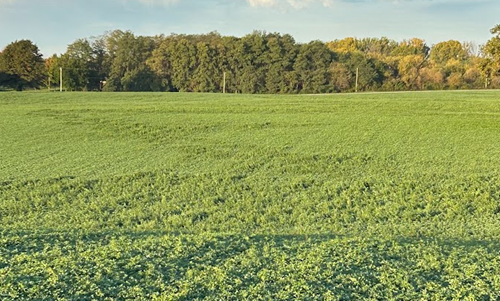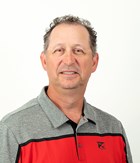Positives of September and October Rainfall?
BY Dairyland Seed Agronomy Team
After a stressful and dry growing season, most of us welcomed our September and October rains with mixed emotions. October has brought 2 to 6 inches of rainfall to most of the Dairyland Seed territory, with 3 inches being the most common. September rainfall totals were similar. Fields have been muddy for harvest and crop moistures are lingering high for some of us. All just salt in the wound after a meager May and June, right? Not exactly.
If you have been in the agriculture industry longer than a day, you will be familiar with the old “only worry about what you can control” adage. You might even be a good practitioner of said mentality. If that’s too difficult, let’s at least acknowledge some positives.
- Subsoil moisture: Dry years deplete groundwater levels. Rainfall now will improve those conditions and help in the long run.
- Many alfalfa stands needed this late rainfall before being hit by winter. Alfalfa plants need a “full gas tank” in their roots to maximize winter hardiness. Some stands were completely stalled out in August and early September, leaving them very vulnerable to winterkill. See photo below.
- The Mississippi River is currently experiencing record low levels (-11.8 ft) at Memphis, TN and south. These low levels restrict barge travel, thus increasing barge rates and fees. Guess what this does to local cash grain basis? Yep, it weakens as elevators attempt to maintain margins. These rains could still translate to money in the bank for this year’s crop, even if it’s already harvested.
So, if you are battling wet conditions, try to make the best of it. Yields are looking solid across the board and there is much to be thankful for. Another thing we are blessed, or maybe cursed, with as agriculturalists: finding that silver lining. Happy harvesting!

Patches of new alfalfa growth are a result of late September rainfall. These areas were previously brown and 2 to 3 inches tall having not grown after third and fourth crop harvesting. Without rainfall, the risk of winterkill was high.

Brian Weller
Western Region
507.456.3034

Rod Moran
Western Region
507.456.3034

Dan Ritter
Central Region
219.863.0583

Branden Furseth
Northern Region
608.513.4265

Mark Gibson
Eastern Region
260.330.8968

Amanda Goffnett
Eastern Region
989.400.3793

Ryan Mueller
Eastern Region
989.400.3793
